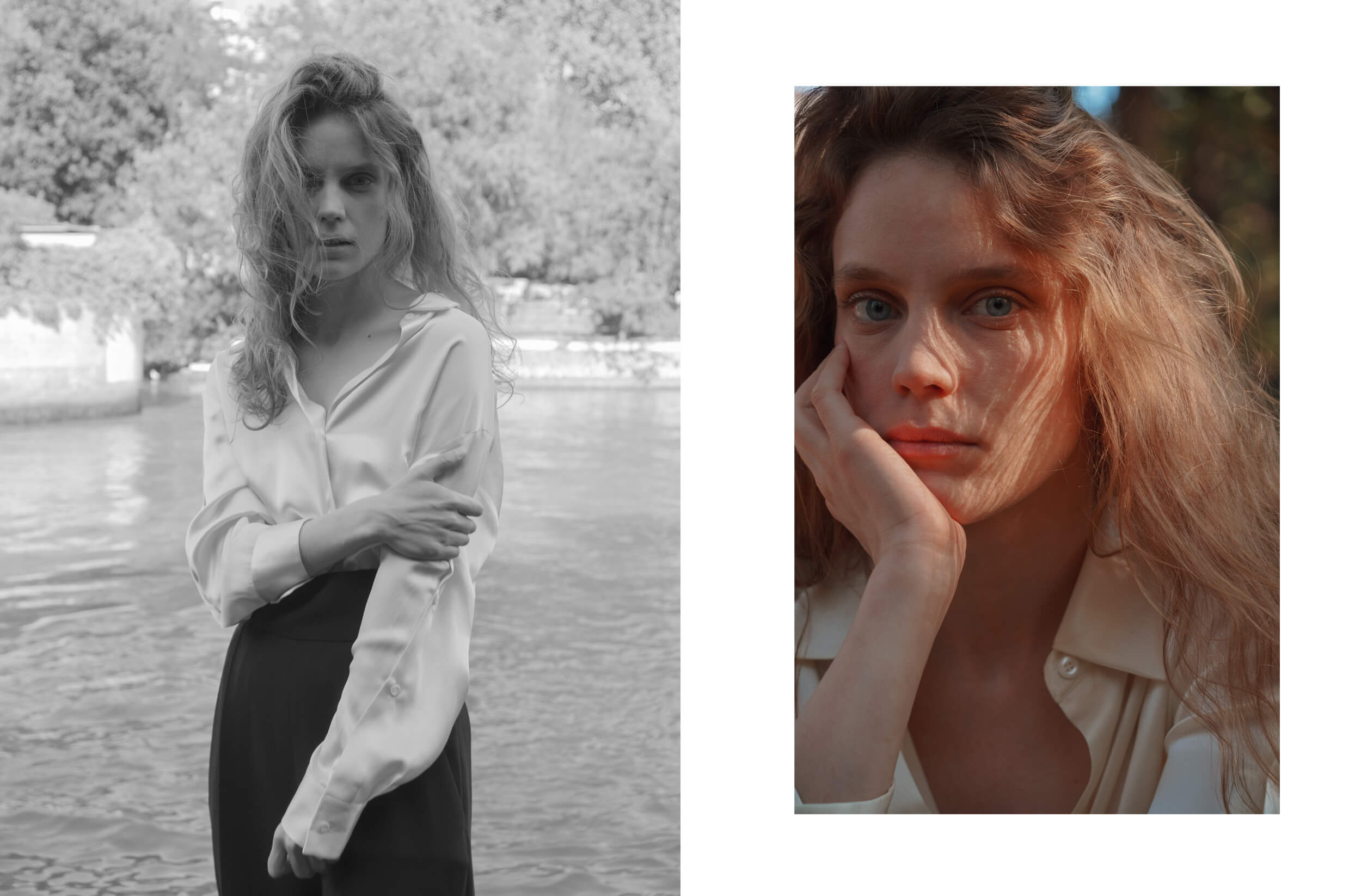A script that “empties you,” an educational art, characters built out of pieces of the self, and one keyword: humanity. This is “America Latina,” the new movie written and directed by Fabio and Damiano D’Innocenzo, a union of concepts and details that the actress Carlotta Gamba helped us investigate one by one.
In the D’Innocenzo brothers’ story, Carlotta, for the first time on the big screen, plays young Laura, one of the daughters of the protagonist (Elio Germano). Immersed in a family reality that’s only apparently full of love and perfection, Carlotta’s character will find some dark spots, in an extremely honest representation of life. A kind of honesty, as Carlotta pointed out, that’s very complicated to deal with, but always necessary, especially when telling stories that talk about us all – only in this way, with honesty, the magic of cinema and theater can happen, uniting realities that are far from each other and, when it works, creating unimaginable and eternal connections.
In a series of smart and deep reflections, Carlotta has also told us about how she’s learned to adapt and reset her rhythms, between the experiences of theater and cinema, while taking care of herself in every life situation. With a huge desire to grow up, “protecting her vulnerability.”
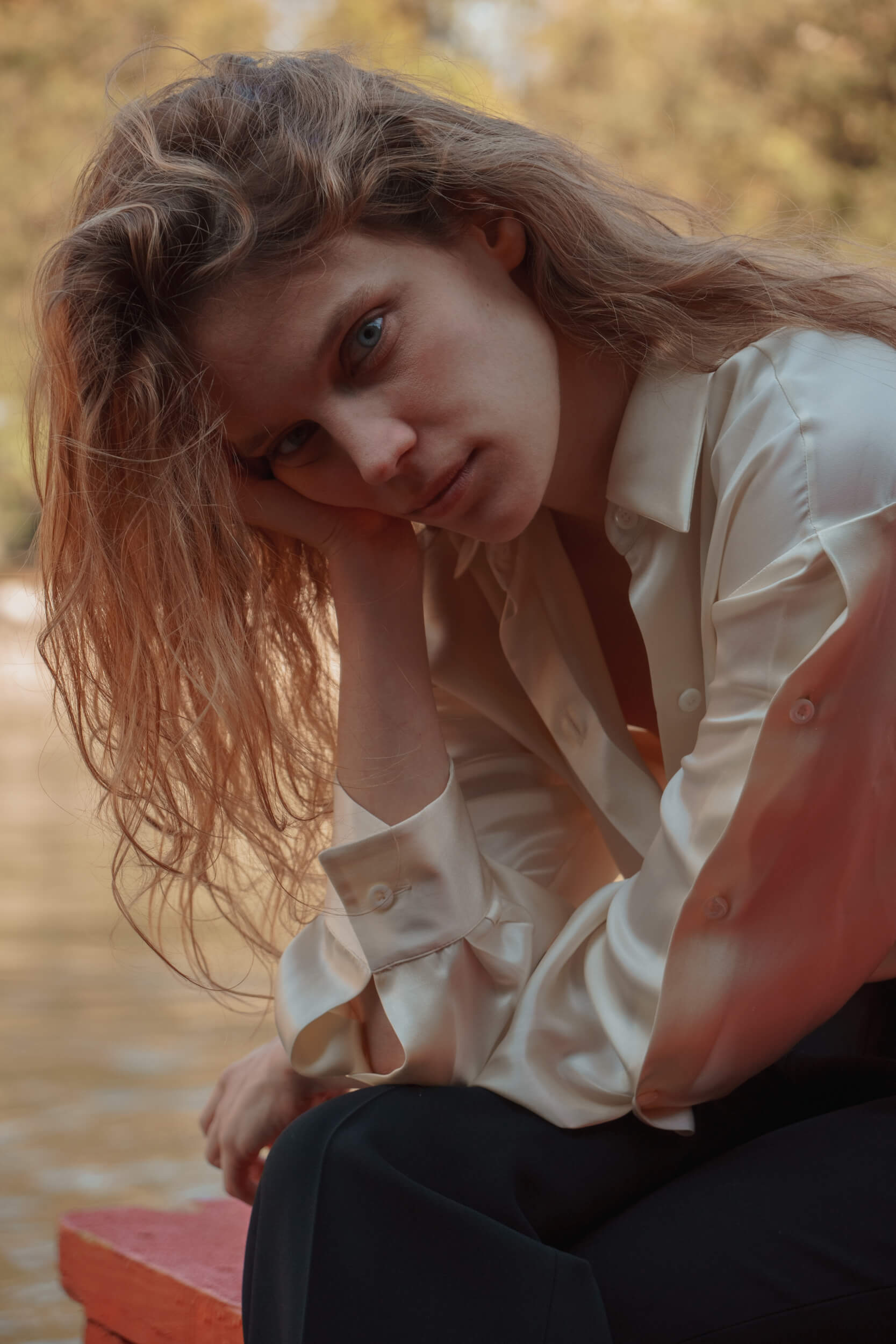
What’s your first cinema memory?
I don’t really have one precise memory, I have so many and I find it hard to recall them in chronological order. I know that in my house, when we would sit and watch a movie, it was always a time of sharing, union, where we felt safe, all together in the same room.
Maybe, my first connection with a movie happened with “War of the Worlds” by Steven Spielberg, I remember that because, as I said, I could feel united with my family, both because of the moment I was living with them, and because my fantasy allowed me to easily identify with Dakota Fanning and her own family. In my life, I’ve never had to run away from aliens trying to wipe out humankind, but I know very well the family reality they break into.
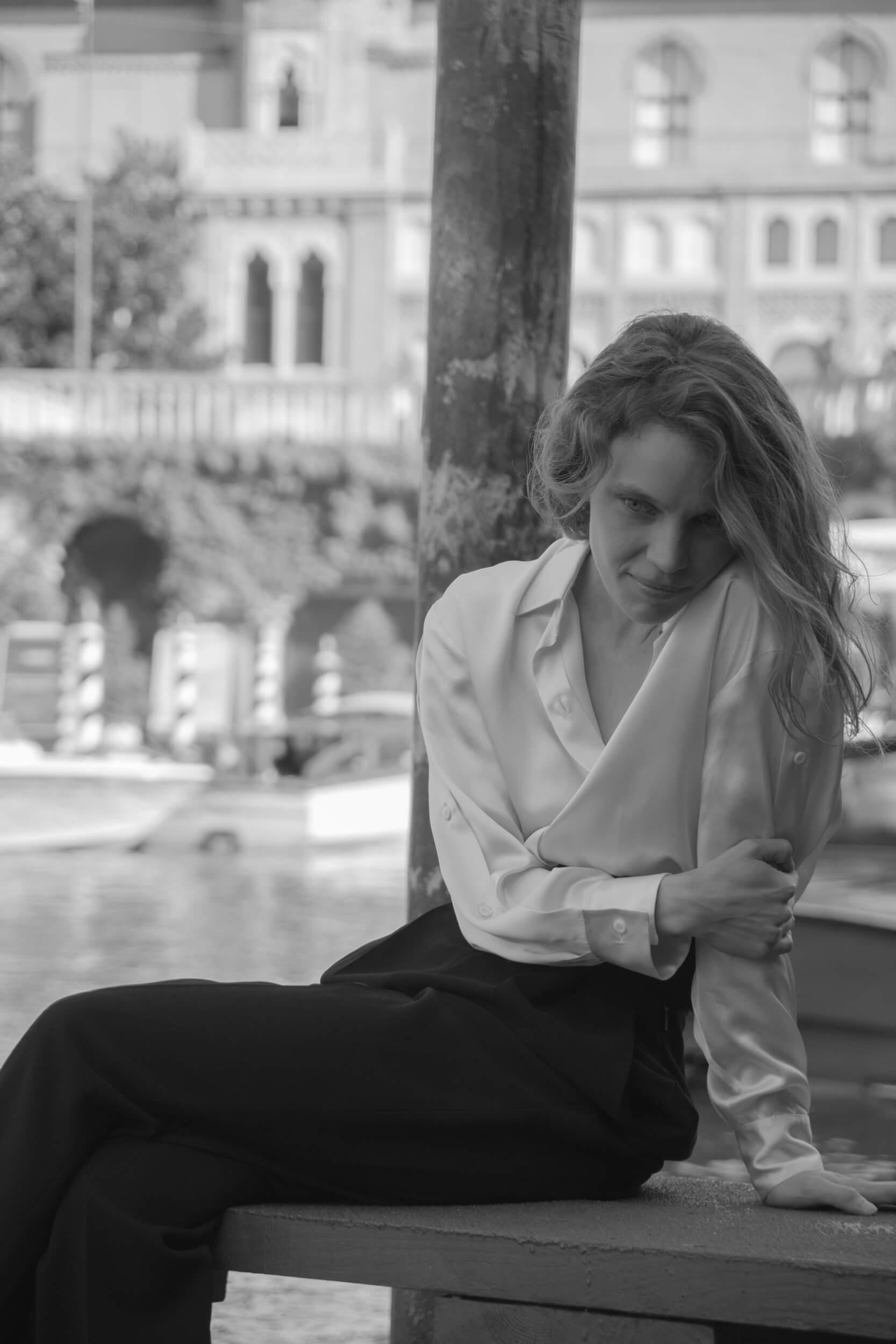
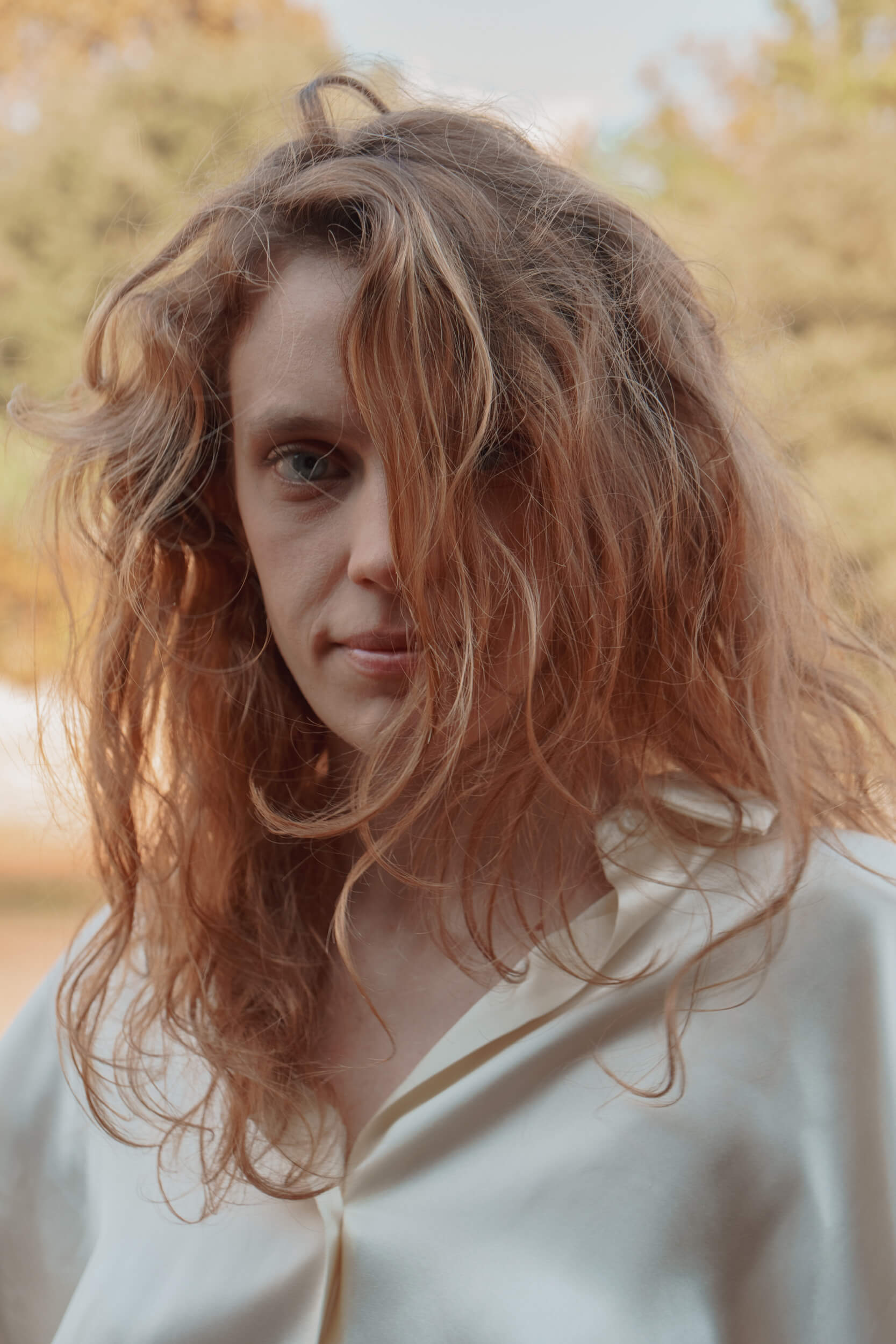
You’re a member of the cast of “America Latina:” what was your first reaction after you read the script? And what was the first question you asked the directors/screenwriters, the D’Innocenzo brothers?
I remember vividly the very moment in which I read it, I was sitting in my usual chair at my kitchen table, it was morning. I read it all at once, and it really felt like a heartbeat. The more I read, the more I wanted to keep reading. The reading emptied me, it was the first script of my life, it opened my eyes to the imagination of what we would have done and what I would have seen the others doing. I immediately connected with Massimo, the protagonist, and the art of the D’Innocenzo brothers is all about always being so human even when telling a story that could apparently seem far away from us.
I think the first question I asked Fabio and Damiano was if it were really me the chosen one to play Laura, of it were all a joke, and my reaction when they told me I got the part and they would have been happy to work with me was pretty wild and, if I think about it, slightly embarrassing as well. It was such a huge joy, something I will never forget.
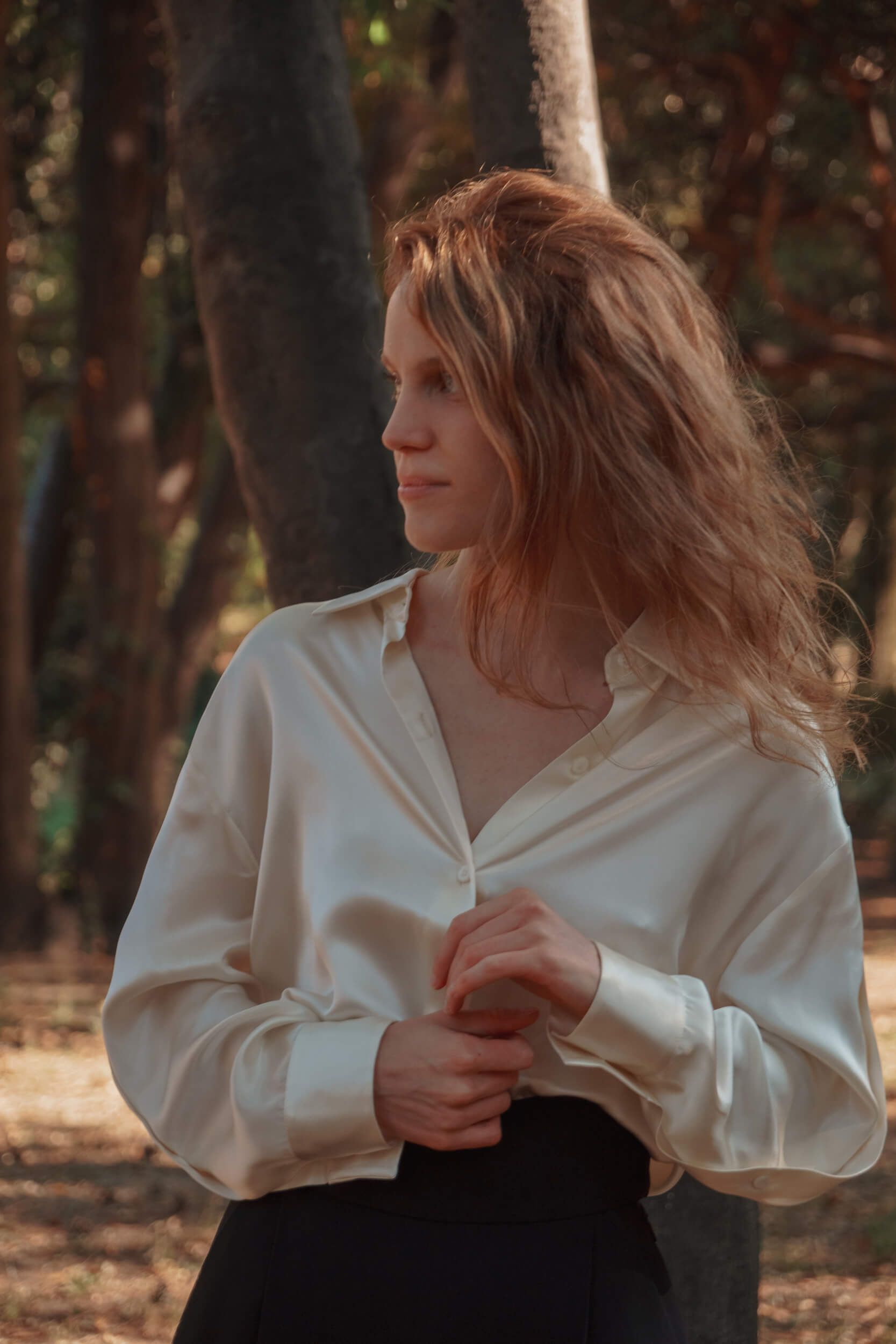
Laura, your character, is part of an apparently perfect family, a perfection that, though, turns out as dark and fragile: how did you work on the building process of your character? Did you also take inspiration from your own personality or personal experience?
My work with Fabio and Damiano consisted in building it together, with small pieces of each of us, it was a union of our sensibilities – it wasn’t always easy because they asked us to be honest, and honesty is not always nice, and it’s also complicated to deal with. This is the humanity I was telling you about, the one they have put in the script and then brought to us and with us on set. It was my first film, and I guess I worked with what’s closest to me: myself. I took inspiration from myself, even though I don’t think this is the right way to put it.
The encounter between Laura and I, and so between the brothers and I, is what created the soul of that pure, almost-woman girl named Laura.
The film talks about love, family lights, shadows, hope, and humanity. What message would you want the audience to get after watching it?
I don’t think that this movie was supposed to leave a message or have moral meaning. The kinds of movies that are beautiful to me are those that talk about us, that makes us emotional, that make us connect even with things that are apparently far from us; the realization that it works that way, that a 24-year-old girl can connect with a 40-year-old dentist, heartens me, fascinates me, it’s the magic of cinema and theater.
I hope that those who’ll watch “America Latina” will be able to see the honesty: what “America Latina” got me thinking is that managing to see the beautiful things, the things that can save us, even when it’s hard to do so, is the most precious gift we can get. The force of love can save you from everything, I saw it in “America Latina” and now, in my life, I am lucky enough to experience it.
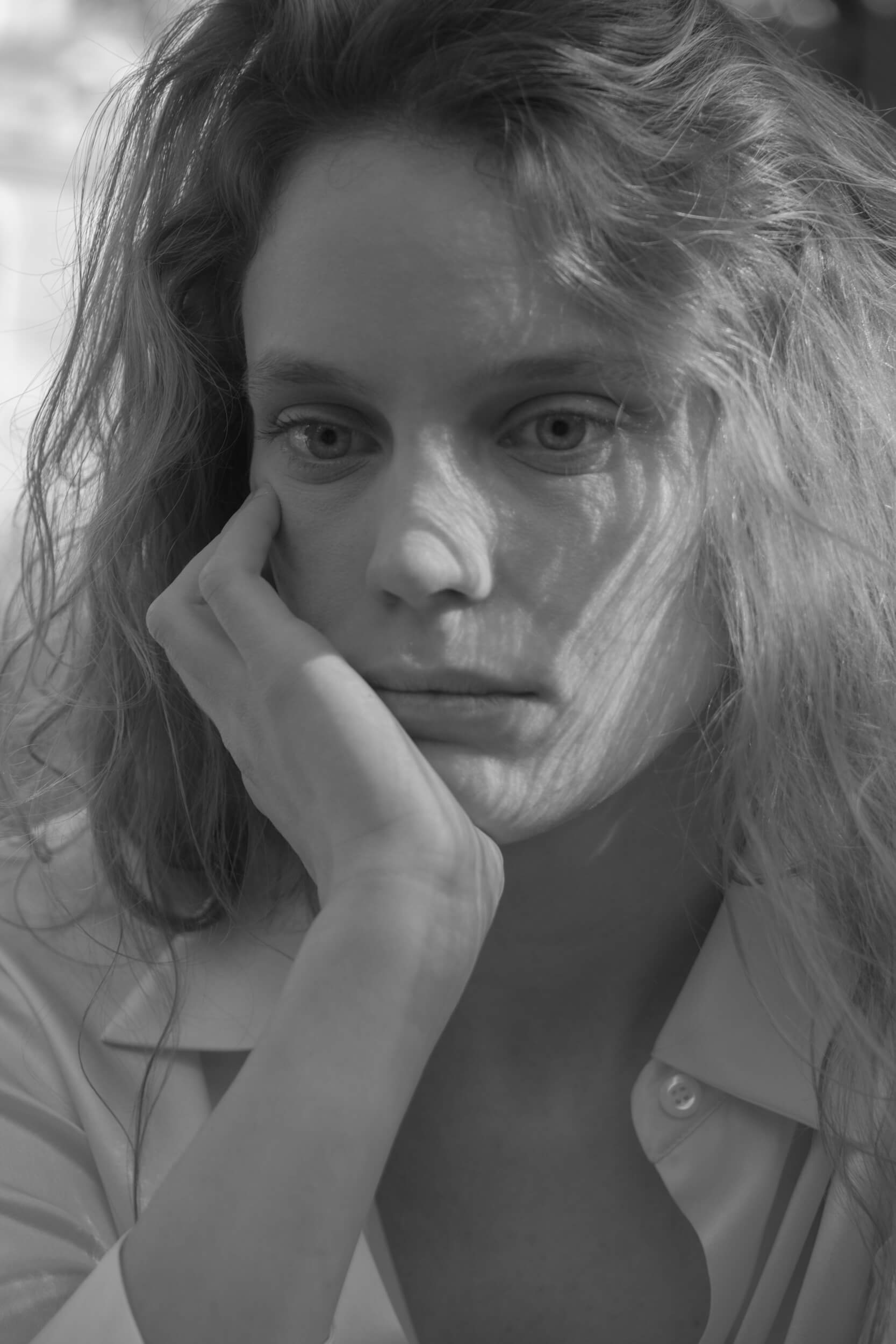
“…managing to see the beautiful things, the things that can save us, even when it’s hard to do so, is the most precious gift we can get.”
One of the themes that the movie tackles, more or less between lines, is the human mistake and the consequences it can have: what’s a big mistake that humankind has committed/is committing, and is there a remedy for it, in your opinion?
I don’t think I have an answer to this question, but I believe that if “America Latina” had the power to make every single one of us reflect upon our mistakes and create such an important meditation, it would be incredible and amazing.
How would you describe “America Latina” in one word?
It’s hard to find just one word. What comes to my mind right now is “honest.”
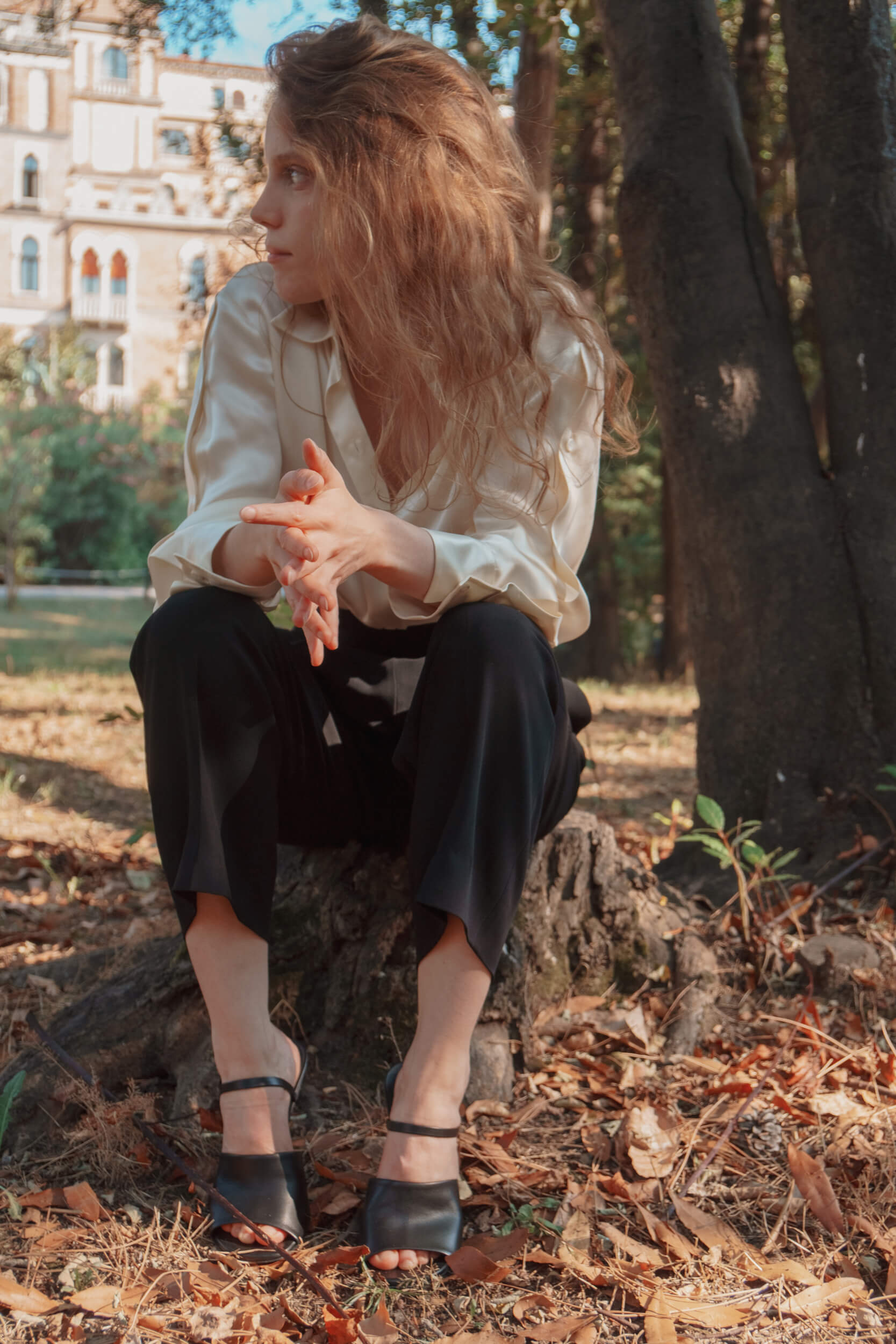
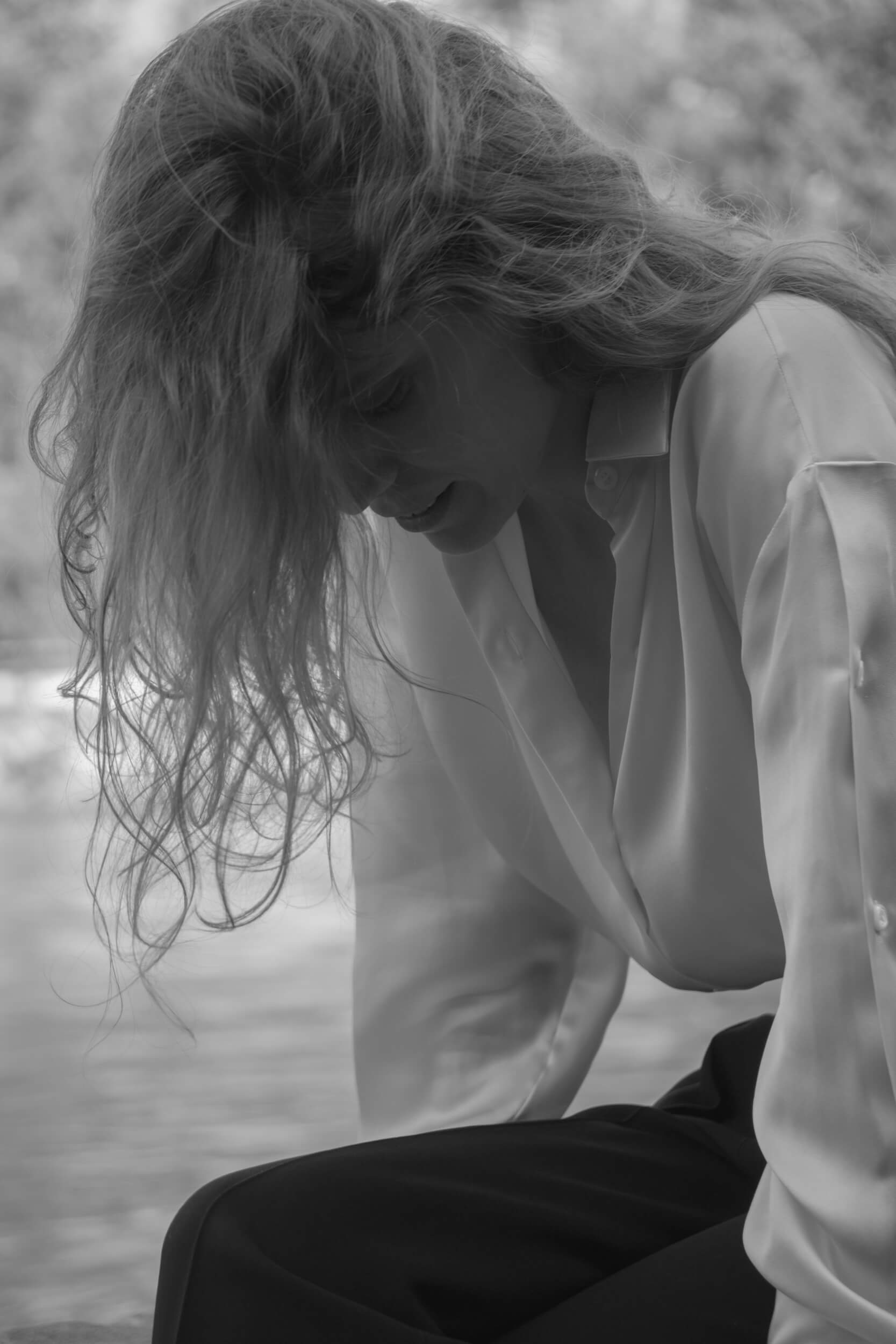
You’ve worked a lot in theater productions in the past. Does your approach to acting change when you switch from the stage to the set? And what’s your favorite part of each of these two experiences?
Only when I got to the set of “America Latina,” which was my first cinema experience, I realized what it meant to act on a set and how hard it is, at least for me, and I don’t even think I’ve really fully understood it yet. As far as I’m concerned, they feel like two very different experiences, everything changes and so you have to change, too, and reset your rhythms and be good at keeping your mind focused. Fabio and Damiano taught me a lot during the filming, they gifted me with their own experience because, while you’re making a movie, you have to take care of yourself both on the set and at home, when you get back there; I’ve learned a lot thanks to them. When, later on, you see everything you’ve managed to create together, it’s incredible, it’s magic. Cinema is like a journey that makes you feel a thousand emotions in a thousand different moments and has the gift of eternity. As for the theater, I was lucky enough to experience it more in smaller realities, and there it’s a jump in the void every night, literally, and it’s magic and it only happens there and in that very moment. They’re two sensitive and complicated places, where stories and emotions come to life.
“Cinema is like a journey that makes you feel a thousand emotions in a thousand different moments and has the gift of eternity.”
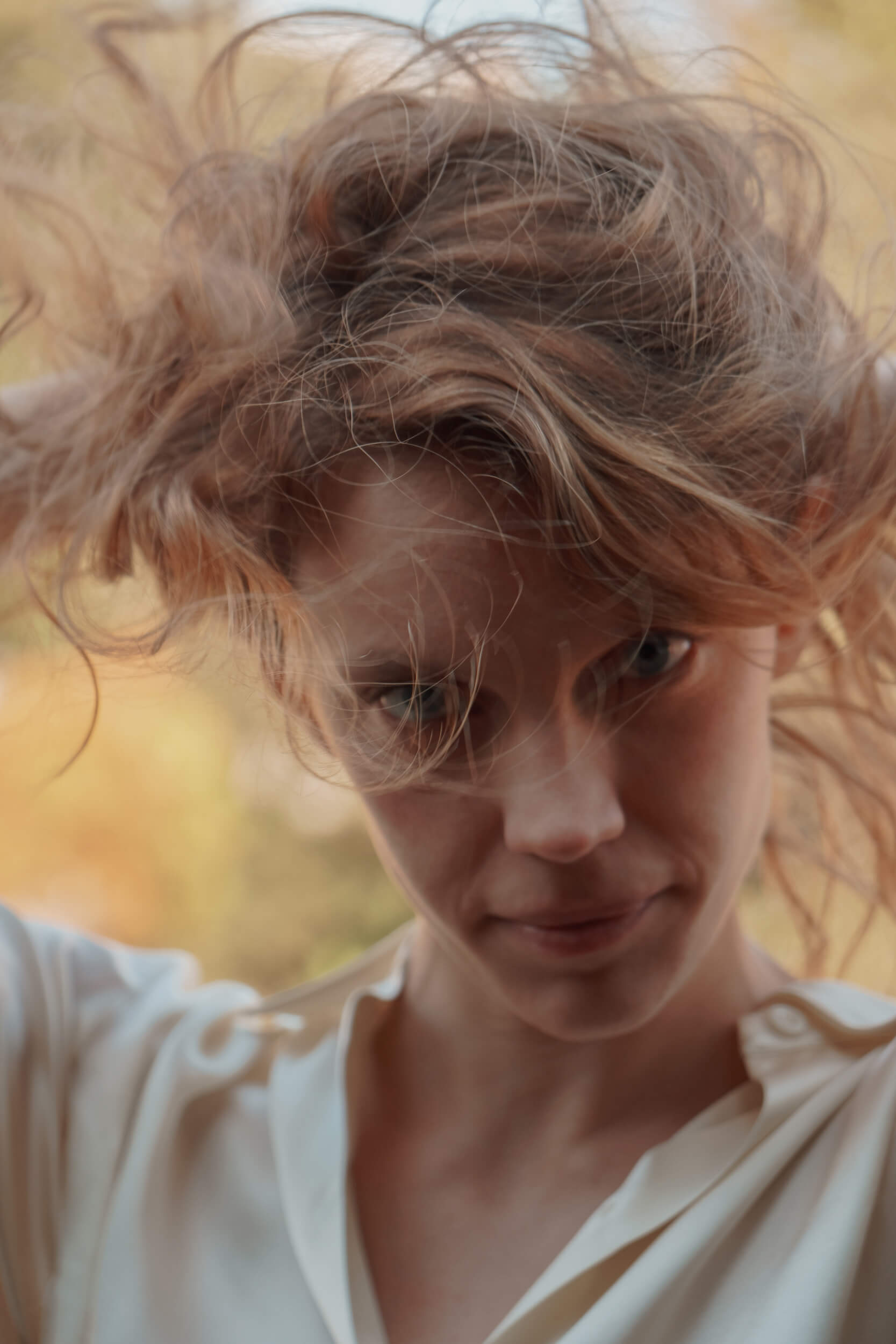
What’s the most important piece of advice you’ve been given so far, that has somehow influenced your approach to acting?
Even though I’m 24 and still have little experience, I was given so many pieces of advice that I keep in mind and that I’ve absorbed, even unconsciously, it’s very hard for me to choose one. I’ve been lucky, many people have taught and helped me to improve myself more and more. Maybe one piece of advice, which has nothing to do with acting, though, or maybe it just partially does, one that I will never forget, is to protect my vulnerability, my sensitivity, and learn to make use of it while respecting myself, giving it the value that it deserves.
The book on your nightstand right now.
“The Novice” by Giovanni Arpino.
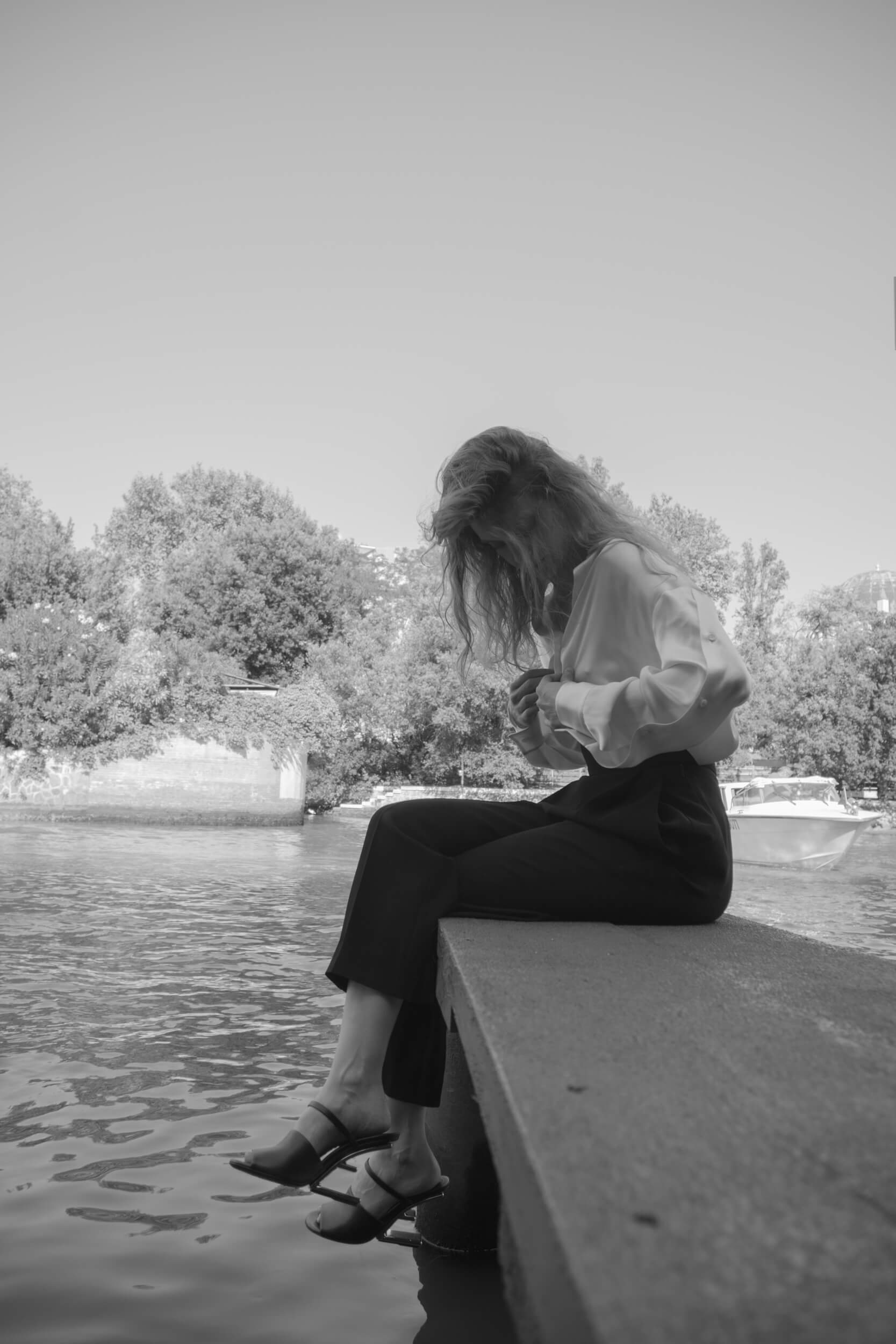
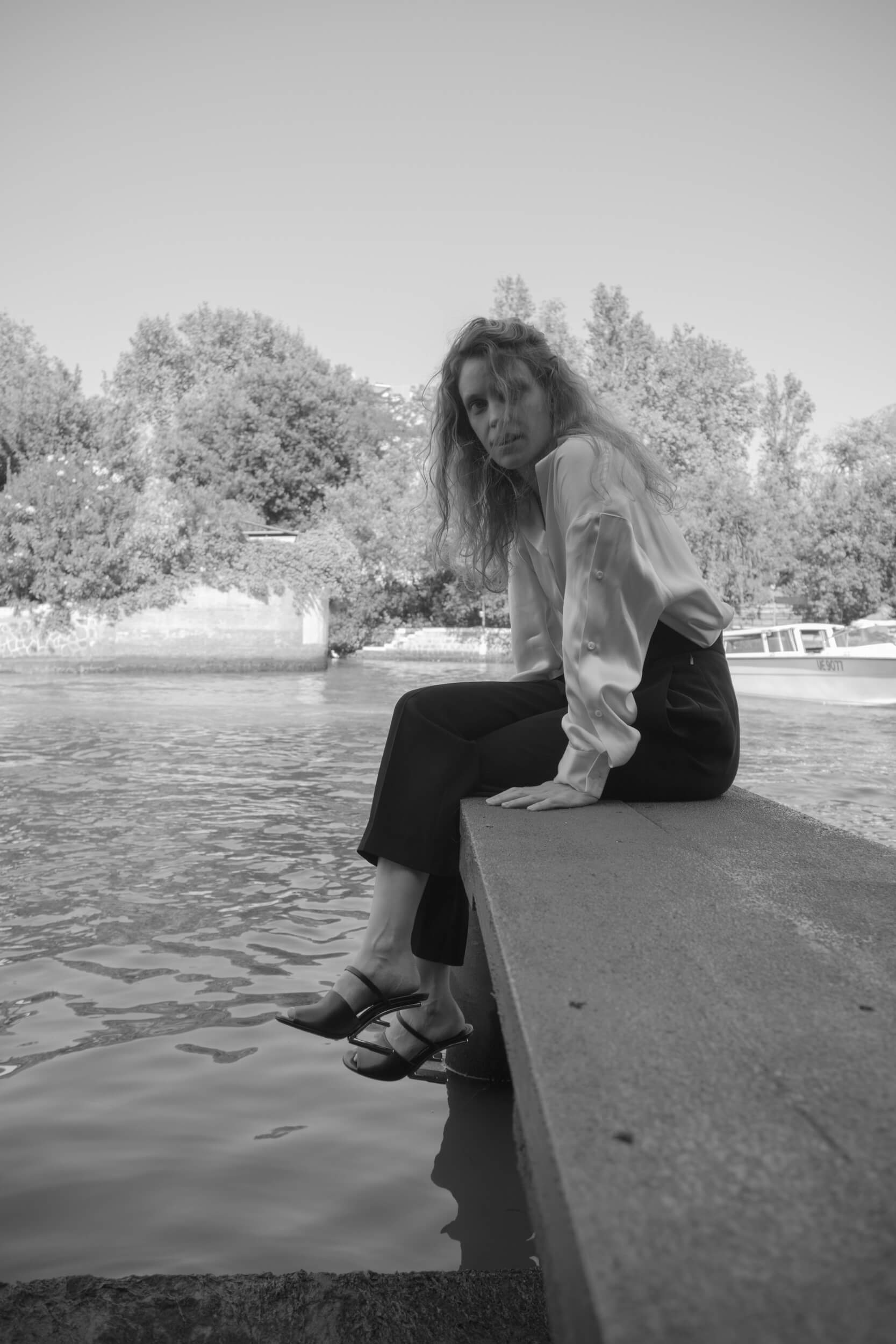
Have you ever had an “epic fail” on set or on stage?
I’ve certainly had a lot, but the one I remember most vividly is the last repeat performance of a show we put up at the academy I used to attend: there. I blacked out, I couldn’t remember my lines, and the problem was that, without my second-to-last line, my scene partner couldn’t finish the show. So, I didn’t really know what to do, those few seconds felt like 20 minutes, everyone was waiting for me and I didn’t know what to say, it was a very unpleasant feeling. Obviously, it became an anecdote for which they would very often tease me, fairly enough.
Your must-have on set.
Music. This is something I’ve learned on the set of “America Latina,” as well. Music to me is a shelter in my life, it’s always been my partner, and bringing it with me on set helped me a lot to keep my mind focused.
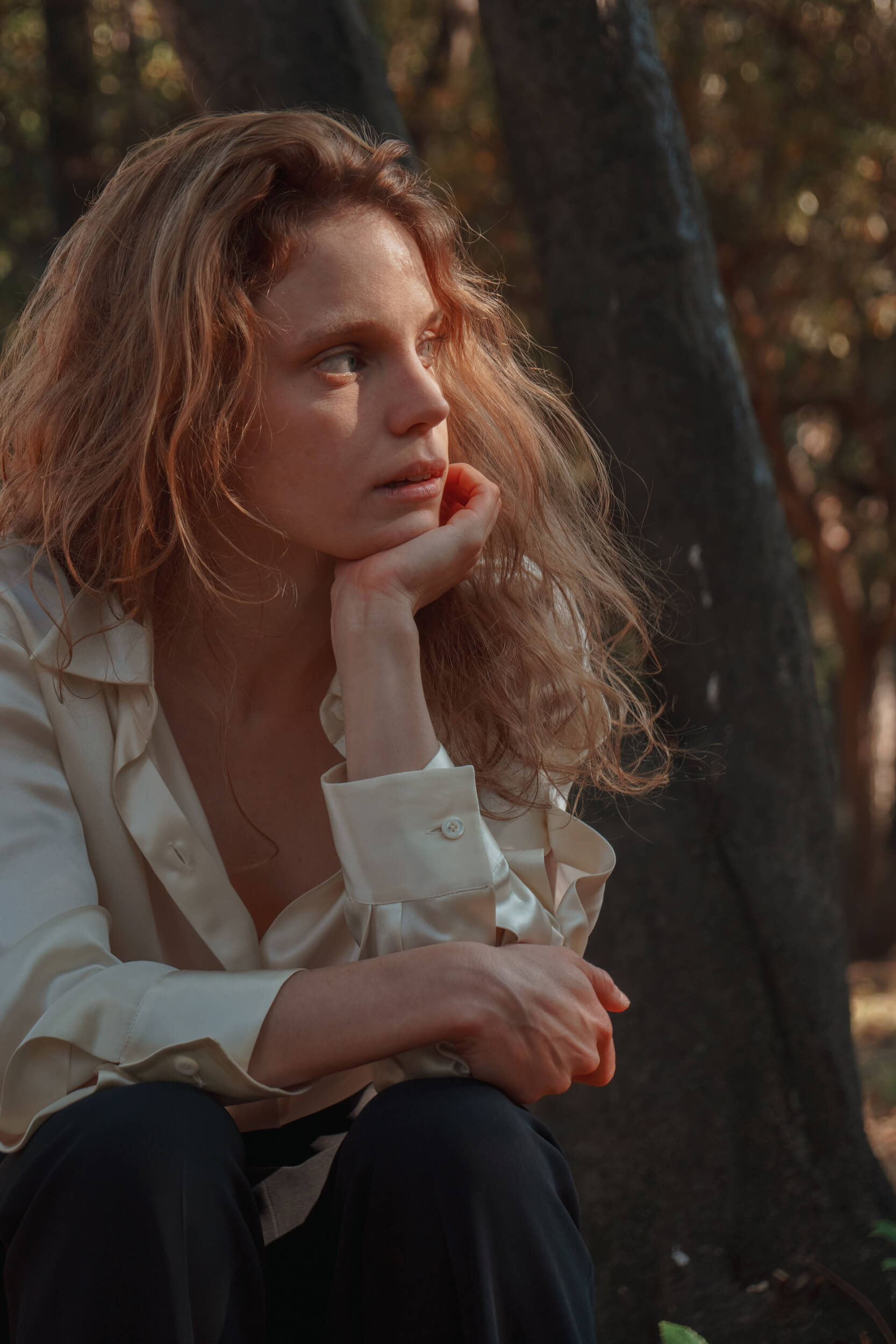
The latest thing you’ve found out about yourself?
That I like to play basketball in video games, that I like basketball. I’m joking. I discovered that there are still so many things for me to learn, so many things that I’d like to improve, I have very few certain things in my life, and this is my starting point to grow up.
What I feel is that I’m trying to grow up, I want to grow up.
What does it mean to you to feel comfortable in your own skin?
I think it means self-confidence and self-acceptance, which are two things that I personally don’t have, or I rarely do.
For now, I’m an actress, so I work with myself, but this doesn’t mean that I don’t find it hard to show myself, or that I love my body or my face. I like acting, I like the magic I’ve been telling you about, but it has nothing to do with my skin or my body. These two things obviously coexist and are often in conflict because, to act, I need my body and my face.
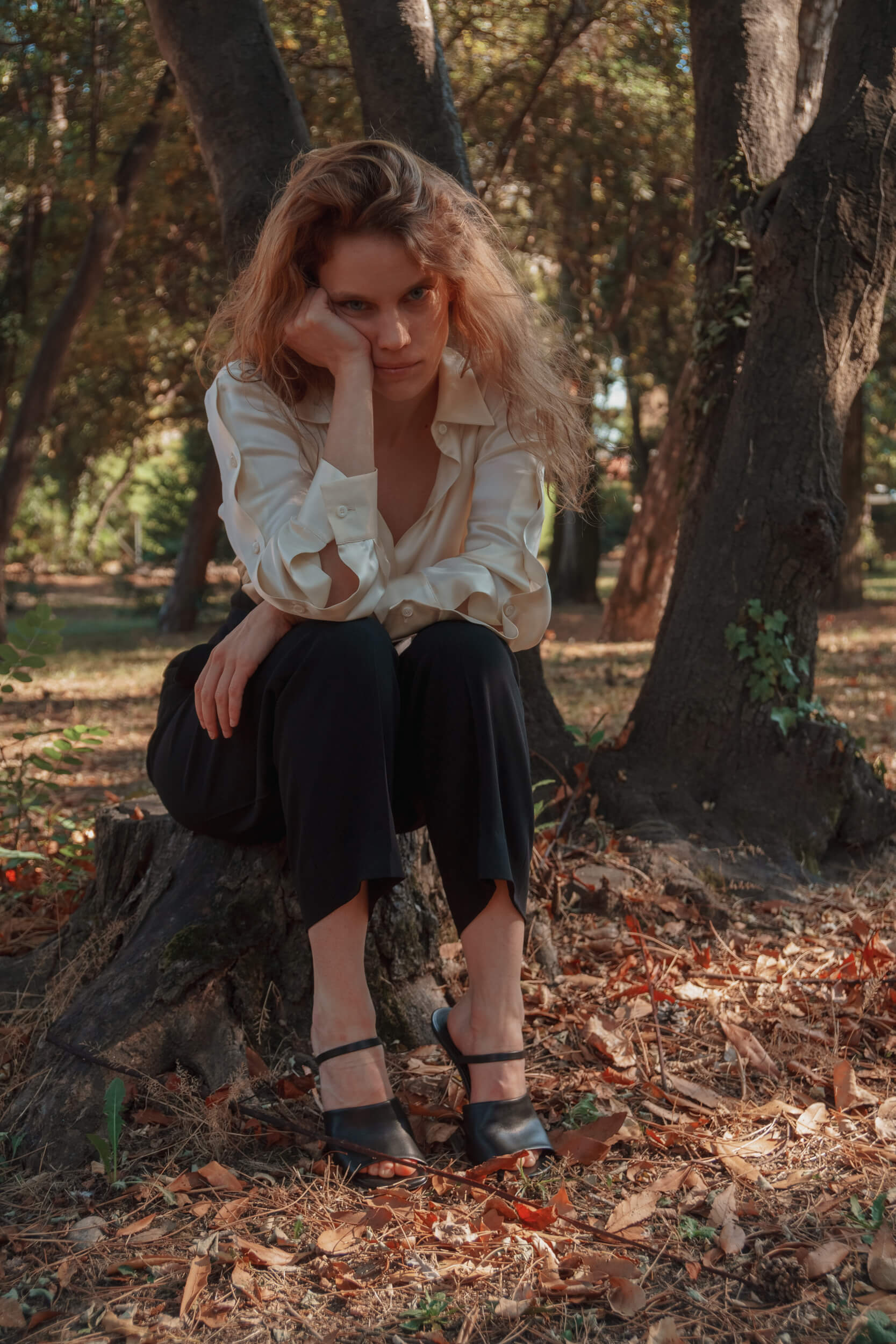
“I like acting, […] but it has nothing to do with my skin or my body.”
What are you afraid of?
I’m afraid of not feeling empathy anymore, of hurting because of this, of not being able to emotionally connect with anything, of not being able to have feelings anymore. I’m afraid of the lack of affection.
What’s the bravest thing you’ve ever done, instead?
I hope I will do braver things than this one in the future – I wouldn’t call myself a brave person – but when I finished high school, I moved from Turin to Rome, I was 19. If I think about my first year in Rome, it was terrible, but I managed to survive it, I still prefer Turin, but now I would never go back.
What’s your happy place?
Ever since I was a kid, I’ve always thought I had to find a place where I could feel safe, my happy place.
Actually, I discovered that it’s not a place, but a person, and I’ve found it and I’ll do everything I can to make them happy in turn.
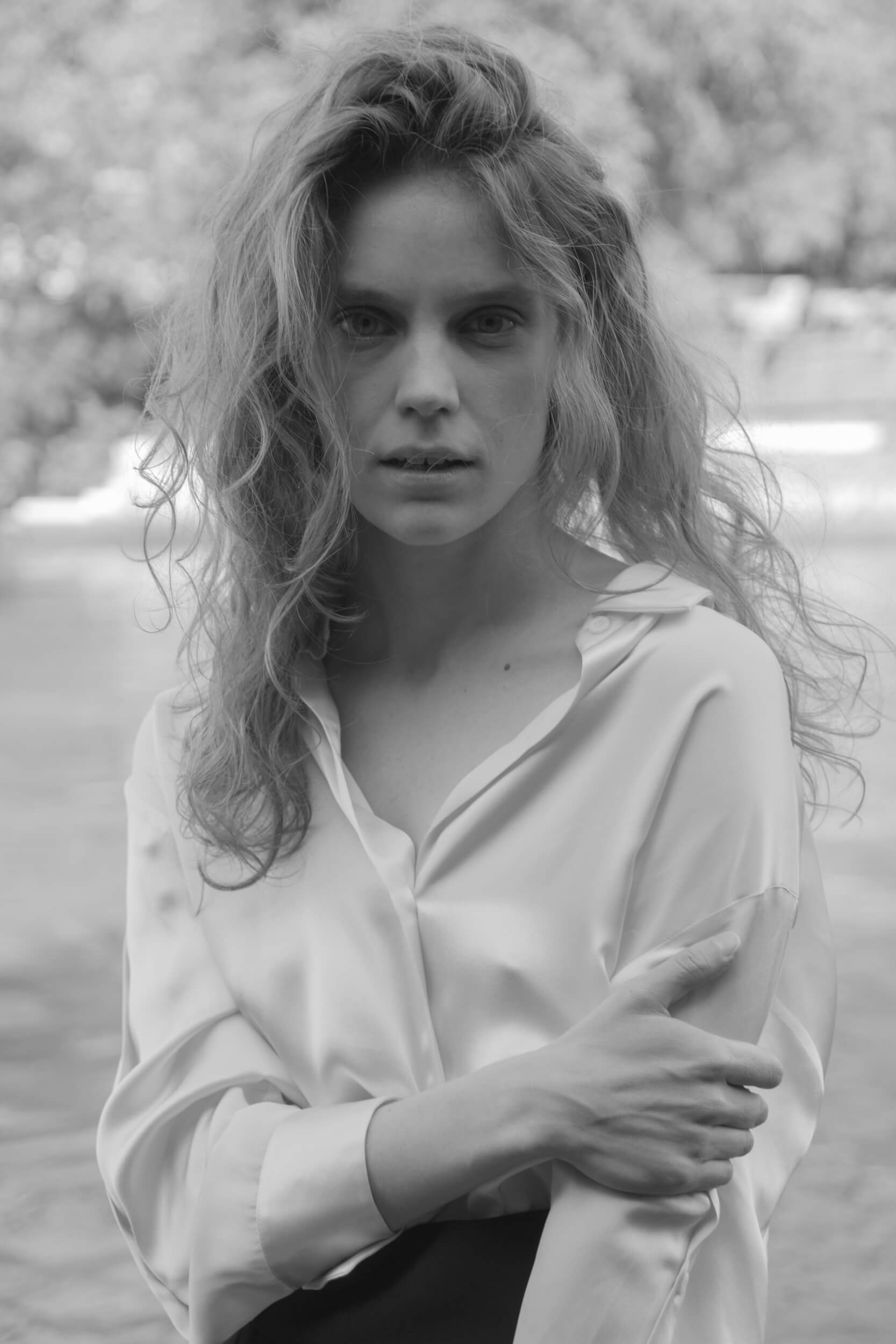
Photos by Johnny Carrano.
Look Fendi.
Styling by Sara Castelli Gattinara and Vanessa Bozzacchi.
Thanks to Other.

